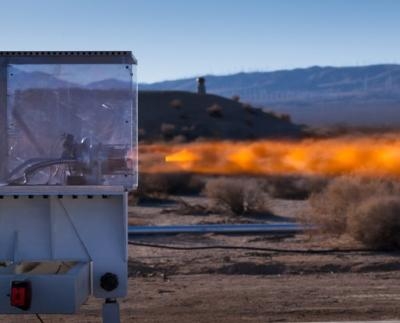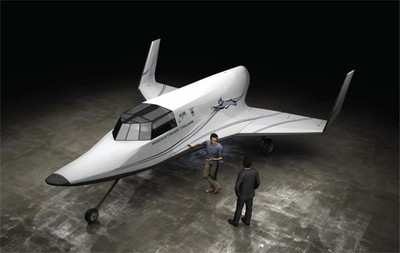Thu, Nov 21, 2013
First Successful Hot Fire Of Liquid Hydrogen Engine
XCOR Aerospace and United Launch Alliance (ULA) have announced a significant milestone ... the first successful hot fire of the subscale 2500 lbf thrust XR-5H25 engine in the XCOR and ULA liquid hydrogen (LH2) engine development program.

“The first hot fire of any engine is a major milestone but the first firing of a liquid hydrogen engine in our LH2 program is an even bigger accomplishment,” noted XCOR Chief Executive Officer Jeff Greason. “The hot fire of this engine moves us forward on a path to routine tests and further demonstration of fully reusable, high reliability rocket engines for which we are known.”
“XCOR’s ability to develop inexpensive, innovative and out-of-the-box solutions to some of the most challenging problems in modern cryogenic rocket engine technology was on display in Mojave,” said George Sowers, vice president of Strategic Architecture at ULA. “It was a great first set of engine runs and we look forward to seeing the engine and XCOR’s unique piston pumps integrated together in 2014.”
Conceived as a lower-cost, risk-managed approach, the goal of the XCOR/ULA LH2 engine program is to produce and operate a subscale demonstration engine. This demonstrator will enable a future decision to pursue development of a flight-ready cryogenic upper-stage engine in the 25,000 lbf thrust class. This technology has significant growth potential due to its unique thermodynamic cycle and piston pump. The larger thrust XCOR XR-8H21 LH2 engine should cost significantly less to produce and be much easier to operate than competing upper stage rocket engine technologies.

XCOR Chief Operating Officer Andrew Nelson said “I was very impressed with how our team dedicated itself to achieving a task that has not been accomplished in at least a quarter century, maybe more; the development of a new way to do liquid hydrogen rocket engines that fundamentally breaks current cost, reliability and operational models. Even more than that, it will be the first piston-pump-fed LH2 rocket engine anywhere.”
The 5H25 engine is intended as a testbed, but could also be suitable for future in-space use on upper stages, earth departure stages, landers, and probes. Nelson added, “This is a significant leap forward in the hope to deliver yet another line of innovation and business to XCOR. And it is only taking place right here.”
(Images provided by XCOR)
More News
He Attempted To Restart The Engine Three Times. On The Third Restart Attempt, He Noticed That Flames Were Coming Out From The Right Wing Near The Fuel Cap Analysis: The pilot repor>[...]
Make Sure You NEVER Miss A New Story From Aero-News Network Do you ever feel like you never see posts from a certain person or page on Facebook or Instagram? Here’s how you c>[...]
From 2009 (YouTube Edition): Leading Air Show Performers Give Their Best Advice for Newcomers On December 6th through December 9th, the Paris Las Vegas Hotel hosted over 1,500 air >[...]
Aero Linx: NASA ASRS ASRS captures confidential reports, analyzes the resulting aviation safety data, and disseminates vital information to the aviation community. The ASRS is an i>[...]
“For our inaugural Pylon Racing Seminar in Roswell, we were thrilled to certify 60 pilots across our six closed-course pylon race classes. Not only did this year’s PRS >[...]
 NTSB Final Report: Rutan Long-EZ
NTSB Final Report: Rutan Long-EZ ANN FAQ: Turn On Post Notifications
ANN FAQ: Turn On Post Notifications Classic Aero-TV: ICAS Perspectives - Advice for New Air Show Performers
Classic Aero-TV: ICAS Perspectives - Advice for New Air Show Performers ANN's Daily Aero-Linx (06.28.25)
ANN's Daily Aero-Linx (06.28.25) Aero-News: Quote of the Day (06.28.25)
Aero-News: Quote of the Day (06.28.25)




